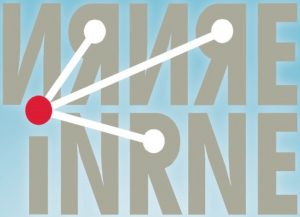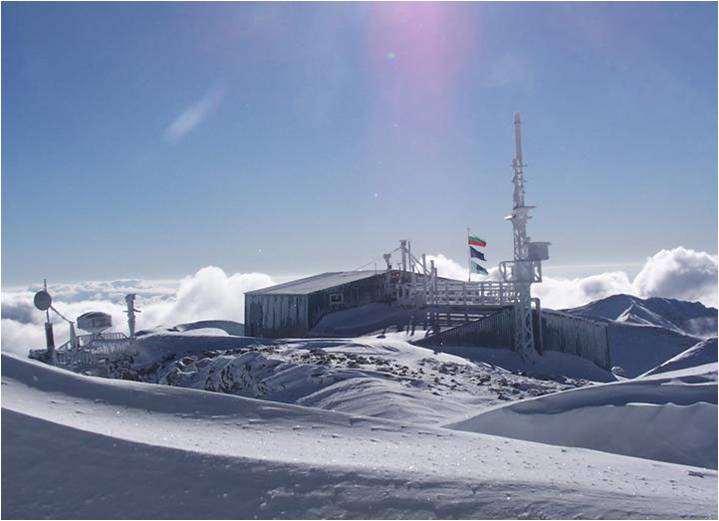Institute for Nuclear Research and Nuclear Energy
 The Institute for Nuclear Research and Nuclear Energy (INRNE) at the Bulgarian Academy of Sciences was founded in 1972 and inherited the major part of the former Physical Institute with Atomic Scientific Experimental Base (FI with ANEM) at the Bulgarian Academy of Sciences.
The Institute for Nuclear Research and Nuclear Energy (INRNE) at the Bulgarian Academy of Sciences was founded in 1972 and inherited the major part of the former Physical Institute with Atomic Scientific Experimental Base (FI with ANEM) at the Bulgarian Academy of Sciences.
INRNE is the largest complex center in Bulgaria for scientific and applied research in the field of nuclear physics and nuclear technologies. Both fundamental scientific problems as well as applied tasks for the implementation of important national programs are developed in it.
Eminent physicists such as Elizaveta Karamihailova, Rashko Zaycoff, Christo Christov, Jelju Jelev, Ivan Zhelyazkov, Pavel Marcov, Nikifor Kashukeev, Emil Nadjakov, Wenceslaw Andrejtscheff and others have worked in INRNE and trained young professionals. The Institute brings together scientists in theoretical and mathematical physics, nuclear physics, physics of high energy and astrophysics, reactor and neutron physics, monitoring and environmental research. By number of publications and citations, INRNE is among the leading academic organizations in Bulgaria. INRNE has established authority in the international scientific community, owing to many years of experience of scientists, the high quality of scientific results and the active cooperation with leading foreign institutes.
Research activity
Traditional scientific areas of the Institute include:
- Theory of elementary particles, string theory, theory of atomic nuclei, soliton interactions and quantum phenomena
- Experimental physics of the elementary particles, nuclear reactions, structure of atomic nuclei, cosmic rays and gamma-astrophysics at ultra high energies
- High Energy Physics
- Neutron interactions and cross sections, physics of the fission
- Reactor physics, nuclear energy and nuclear safety and security
- Dosimetry and radiation safety
- Monitoring and management of the environment, radioecology
- Radiochemistry, high precision analyses of substances, development and production of radioactive sources
- Nuclear and neutron methods for investigations of substances, nuclear instrument design and production
INRNE seeks to apply scientific excellence to the benefit of society. Close cooperation has been established with colleagues from the Kozloduy NPP. Operational activity on dosimetric control and work with ionizing radiation is carried out.
In the 1990s, one of INRNE units launched the only radioactive waste repository in the country, thus laying the foundations for solving an important societal problem: radio-ecology. Specialized buildings were built in the area of Novi Han village, not far from Sofia, provided with the necessary equipment and methods for disposal of such waste. In 2006, by decision of the Council of Ministers, the Radioactive Waste Repository in Novi Han, reconstructed and modernized in accordance with the internationally accepted standards, was submitted to the State Enterprise “Radioactive Waste”. Notwithstanding, INRNE continues to maintain active scientific contacts with it and renders the necessary high professional assistance to its activities.
The construction of the National Cyclotron Center, which started after 2015, is a key infrastructure and research project in the field of nuclear research and nuclear energy. The objectives of this project are: active support for the development of nuclear medicine in Bulgaria and in the countries of the Balkan Peninsula; basic training of both future specialists for Kozloduy NPP as well as for nuclear centers and centers of nuclear medicine; conducting research related to nuclear energy, nuclear physics, radiation protection and nuclear safety; providing radiopharmaceutical preparations for the growing needs in the contemporary treatment of socially significant diseases.
Since 2005, 13 laboratories in INRNE have had and maintained a QQS certificate under ISO 9001: 2000, ISO 14001: 2004 Quality Management System and ISO 14001: 1996 Environmental Management System Certificate.
Educational activity
INRNE is accredited for PhD program training in:
- Theoretical and Mathematical Physics
- Nuclear physics
- Neutron physics and physics of nuclear reactors, incl. Neutron physics, Nuclear reactor physics and dosimetry, Nuclear physics methods and devices for substance analyses
- Physics of high energies and elementary particles, physics and particle astrophysics
- Radiochemistry
- Nuclear reactors
INRNE Training Center for Specialized Training holds the license СT reg. № 04692 for carrying out specialized training and issuing licenses for activities with sources of ionizing radiation. The tasks of INRNE Training Center for Specialized Training are defined as:
- Initial specialized training for qualification in performing sources of ionizing radiation (SIR) activities;
- Conducting specialized support training for qualification in activities with SIR;
- Examining by a permanent Qualification Examination Commission appointed by the Director of INRNE;
- Issuance of certificates of competency for activities with SIR.
Contacts
Basic Environmental Observatory (BEO) Moussala
The Basic Environmental Observatory (BEO) Moussala, part of INRNE, is located on the highest peak of the Balkan Peninsula – Moussala (2925.4 m above sea level, 42o18`N, 23o59`E) in Rila Mountain.
The unique geographical location of Moussala peak (it is considered to be in the free troposphere) allows, in addition to traditional cosmic rays research, to carry out studies related to global climate change, transport of cross-border pollution, possible correlations of cosmic ray intensity with atmospheric parameters and more.
In 2016, BEO Moussala was recertified by IQNET for ISO 9001: 2008 and ISO 14001: 2004 standards.


